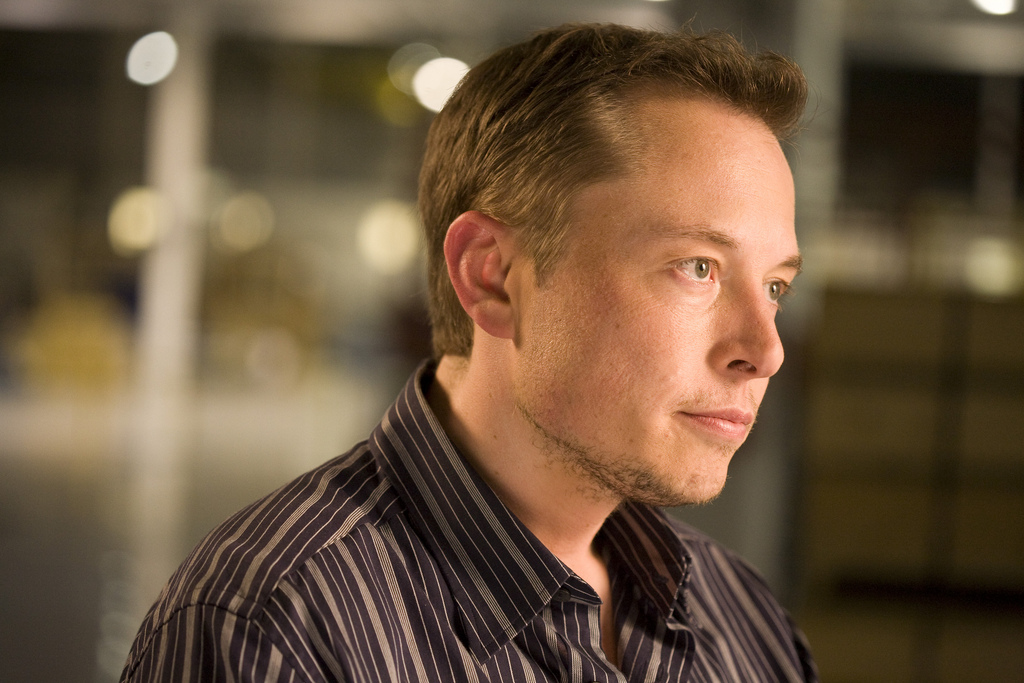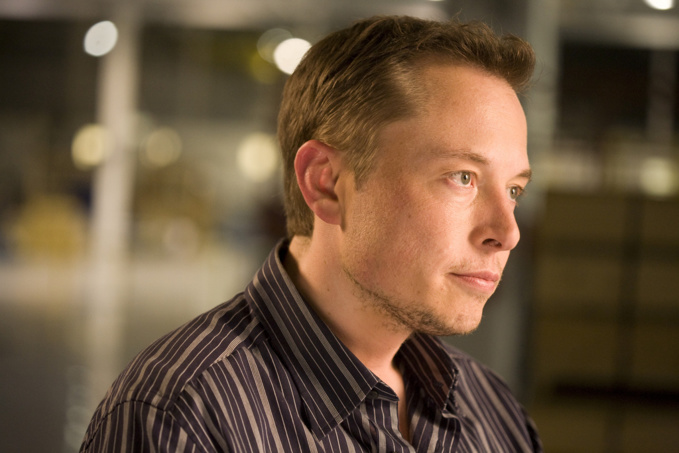This news hardly added confidence to the shareholders, especially considering that Tesla securities were losing three times in value in March. After the fatal accident in Mountain View, which occurred on March 23, they fell immediately by 10%. Their cost is also adversely affected by the Uber crash, obviously, because Tesla machines are also equipped with an autopilot. Finally, because of the significant backlog in the pace of production of Model 3, Moody's downgraded the credit rating of the company. Consequently, the share’s price fell
We hear about Tesla very often, maybe more often than about any other brand, but the production volumes in Fremont remain rather modest. Even despite skyrocketing growth rates: in 2012 the company produced 2,600 electric vehicles, in 2017 - already 103,000. Undoubtedly, it’s impressive enough. However, Nissan Leaf, which entered the market two years later than the model Roadster, in early 2018 marked the conveyor anniversary - 300,000 cars produced. The total number of all Tesla models produced is 290 000.
Of course, one can argue that these are cars of different price categories. But it's not just that: traditional automobile concerns have tremendous production and financial capabilities. Yes, they are slow, cautious, and feel the market, and this gives Tesla time. But now, when everything is ready for mass production of electric cars (largely thanks to Musk), the company from the Silicon Valley risks being trampled by feet of the giants. They have everything ready, as evidenced by the latest auto shows.
In order to catch up, Tesla needs to grow significantly. The further increase in production is associated with Model 3, a rather affordable model. Tesla received over 500,000 pre-orders for this car. This is already a significant figure by industry standards, but it quickly became clear that the company is not able to meet demand.
Alas, the charisma of Tesla’s founder and his undeniable talent of a promoter are powerless here. What Tesla need is Henry Ford or Toyota founder Kiichiro Toyoda, in other words, a genius of production.
Now, more than 90% of all electric cars have various defects - from chipped paintwork to the lack of a number of spare parts. Cars that cannot be repaired quickly accumulate in an open area. But it was the art of quick and high-quality assembly that turned Toyota or Volkswagen into leaders of the industry. This is the main know-how, the guarantee of competitiveness.
In addition, Tesla is clearly experiencing difficulties with suppliers of spare parts. Employees at the plant in Fremont complain that up to 40% of the parts do not meet the specification. They have to be sent to the Recovery Center, which is 80 kilometers from the production site. That is, there are also logistical problems, which increase the cost and delay production.
Is this ship sinking?
There is nothing surprising in the current situation, and this is not a testament to the incompetence of Tesla's top management. Large automotive brands had about 100 years to fine-tune production processes. On the other hand, it’s been only a decade for Tesla. Chances were not originally equal. In addition, highly skilled employees have been leaving the company since the middle of the last year.
Elon Musk continues to implement simply stunning advertising campaigns and give out promises, but the pace of release of Model 3 is still half the planned. Moody's is threatening to further lower its credit rating due to poor financial performance, and co-founder of Apple Steve Wozniak stated bluntly that he does not believe Musk anymore. In his opinion, Audi and BMW are already far ahead of Tesla in the sphere of creating a self-controlled car. Yet, they value their reputation and do not want to introduce a crude product to the market. But Tesla did not hesitate, and went down in history as the first company whose autopilot killed the driver.
Will the company survive when eminent competitors strike: the Jaguar I-PACE electric-rover attacks Model X, and so on? And this will happen in the very near future. Perhaps, the fans of the brand can only hope for Elon Musk's uniqueness - suddenly he will come up with something that ordinary producers will go on for another decade. Otherwise, after a while, the Tesla logo will be visible only in the car museum.
source: forbes.com
We hear about Tesla very often, maybe more often than about any other brand, but the production volumes in Fremont remain rather modest. Even despite skyrocketing growth rates: in 2012 the company produced 2,600 electric vehicles, in 2017 - already 103,000. Undoubtedly, it’s impressive enough. However, Nissan Leaf, which entered the market two years later than the model Roadster, in early 2018 marked the conveyor anniversary - 300,000 cars produced. The total number of all Tesla models produced is 290 000.
Of course, one can argue that these are cars of different price categories. But it's not just that: traditional automobile concerns have tremendous production and financial capabilities. Yes, they are slow, cautious, and feel the market, and this gives Tesla time. But now, when everything is ready for mass production of electric cars (largely thanks to Musk), the company from the Silicon Valley risks being trampled by feet of the giants. They have everything ready, as evidenced by the latest auto shows.
In order to catch up, Tesla needs to grow significantly. The further increase in production is associated with Model 3, a rather affordable model. Tesla received over 500,000 pre-orders for this car. This is already a significant figure by industry standards, but it quickly became clear that the company is not able to meet demand.
Alas, the charisma of Tesla’s founder and his undeniable talent of a promoter are powerless here. What Tesla need is Henry Ford or Toyota founder Kiichiro Toyoda, in other words, a genius of production.
Now, more than 90% of all electric cars have various defects - from chipped paintwork to the lack of a number of spare parts. Cars that cannot be repaired quickly accumulate in an open area. But it was the art of quick and high-quality assembly that turned Toyota or Volkswagen into leaders of the industry. This is the main know-how, the guarantee of competitiveness.
In addition, Tesla is clearly experiencing difficulties with suppliers of spare parts. Employees at the plant in Fremont complain that up to 40% of the parts do not meet the specification. They have to be sent to the Recovery Center, which is 80 kilometers from the production site. That is, there are also logistical problems, which increase the cost and delay production.
Is this ship sinking?
There is nothing surprising in the current situation, and this is not a testament to the incompetence of Tesla's top management. Large automotive brands had about 100 years to fine-tune production processes. On the other hand, it’s been only a decade for Tesla. Chances were not originally equal. In addition, highly skilled employees have been leaving the company since the middle of the last year.
Elon Musk continues to implement simply stunning advertising campaigns and give out promises, but the pace of release of Model 3 is still half the planned. Moody's is threatening to further lower its credit rating due to poor financial performance, and co-founder of Apple Steve Wozniak stated bluntly that he does not believe Musk anymore. In his opinion, Audi and BMW are already far ahead of Tesla in the sphere of creating a self-controlled car. Yet, they value their reputation and do not want to introduce a crude product to the market. But Tesla did not hesitate, and went down in history as the first company whose autopilot killed the driver.
Will the company survive when eminent competitors strike: the Jaguar I-PACE electric-rover attacks Model X, and so on? And this will happen in the very near future. Perhaps, the fans of the brand can only hope for Elon Musk's uniqueness - suddenly he will come up with something that ordinary producers will go on for another decade. Otherwise, after a while, the Tesla logo will be visible only in the car museum.
source: forbes.com



















